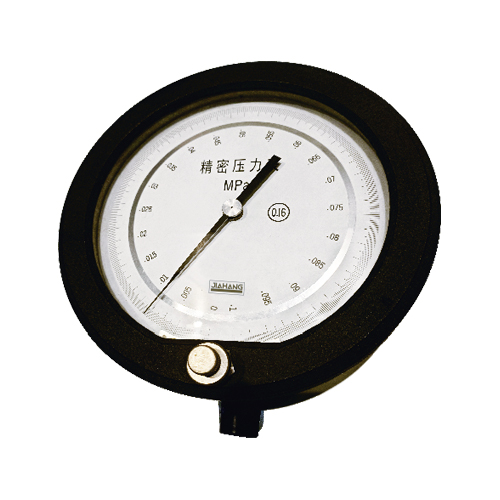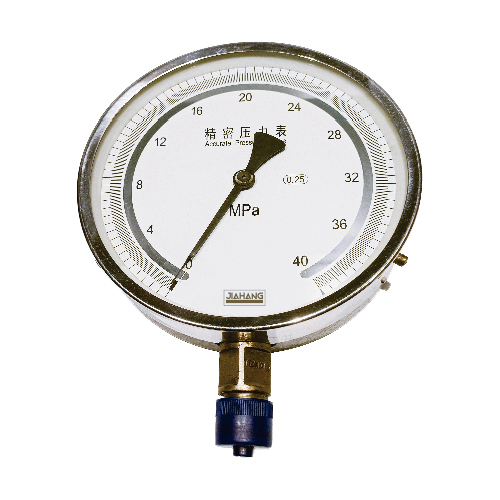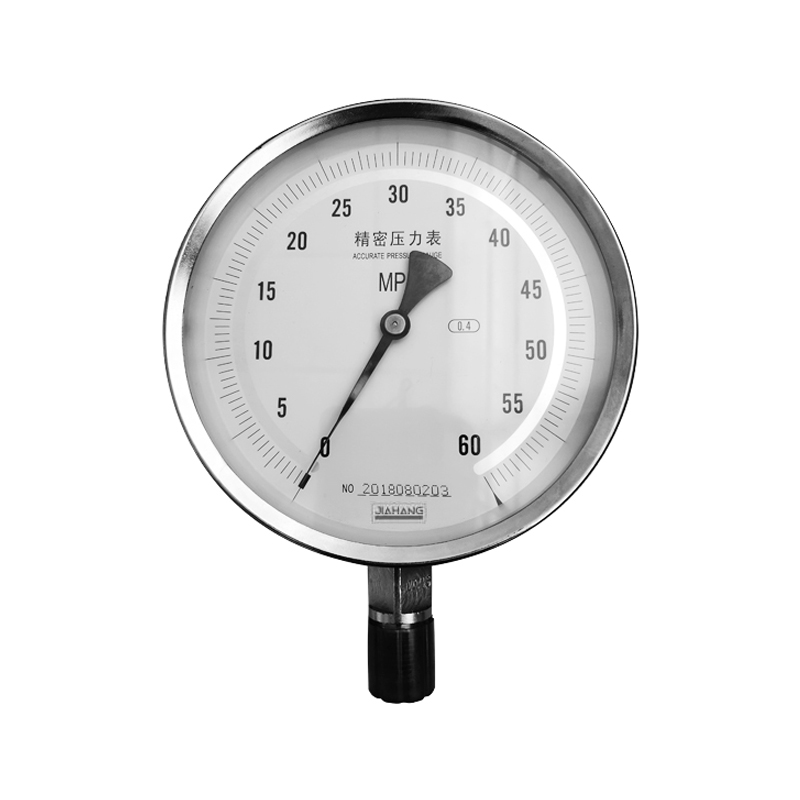Introducing the Precision Pressure Gauge: Your Ultimate Tool for Accurate Measurements
In a world where precision is paramount, the Precision Pressure Gauge stands out as an essential instrument for professionals and enthusiasts alike. Whether you are in the automotive industry, HVAC, manufacturing, or any field that requires accurate pressure readings, this state-of-the-art gauge is designed to meet your needs with unparalleled accuracy and reliability.
Unmatched Accuracy and Reliability
At the heart of the Precision Pressure Gauge is its advanced sensor technology, which ensures that you receive the most accurate pressure readings possible. With a measurement range that accommodates both low and high pressures, this gauge is versatile enough to handle a variety of applications. The high-resolution display provides clear and easy-to-read measurements, allowing you to make informed decisions quickly and efficiently.
Robust Design for Any Environment
Constructed with durability in mind, the Precision Pressure Gauge features a rugged casing that can withstand harsh working conditions. Whether you are in a factory, on a construction site, or in a laboratory, this gauge is built to endure. Its weather-resistant design ensures that it performs reliably in both indoor and outdoor settings, making it the perfect companion for any job.
User-Friendly Interface
Simplicity is key when it comes to effective tools, and the Precision Pressure Gauge excels in this area. The intuitive interface allows users of all skill levels to operate the gauge with ease. With just a few buttons, you can switch between measurement units, reset the gauge, and access additional features. The large, backlit display ensures that you can read measurements clearly, even in low-light conditions.
Versatile Applications
The Precision Pressure Gauge is not just a one-trick pony; it is designed for a wide range of applications. From monitoring tire pressure in vehicles to measuring gas and liquid pressures in industrial settings, this gauge is a versatile tool that can adapt to your specific needs. Its ability to provide real-time readings makes it an invaluable asset for troubleshooting and maintenance tasks.
Calibration and Maintenance Made Easy
To ensure that your Precision Pressure Gauge continues to deliver accurate readings over time, it comes with a straightforward calibration process. Regular maintenance is essential for any precision instrument, and our gauge is designed to make this as hassle-free as possible. With easy-to-follow instructions, you can keep your gauge in top condition, ensuring that it remains a reliable tool in your arsenal.
Eco-Friendly and Energy Efficient
In today’s environmentally conscious world, the Precision Pressure Gauge is designed with sustainability in mind. It features energy-efficient components that minimize power consumption, allowing you to use it for extended periods without worrying about battery life. Additionally, the materials used in its construction are recyclable, making it a responsible choice for eco-minded professionals.
In summary, the Precision Pressure Gauge is the ultimate tool for anyone who values accuracy, reliability, and ease of use. Its robust design, user-friendly interface, and versatility make it an indispensable instrument for a wide range of applications. Whether you are a seasoned professional or a DIY enthusiast, this gauge will elevate your work to new heights. Invest in the Precision Pressure Gauge today and experience the difference that precision can make in your projects.
-
Precision Pressure Gauge(PPG)YB-160
-
Precision Pressure Gauge(PPG)YB-150
-
Precision Pressure Gauge(PPG)YB-150
-
Manometro di precisione-YB-150
What Type Of Pressure Gauge Is Most Accurate?
When it comes to measuring pressure in various applications, accuracy is paramount. Whether in industrial settings, laboratories, or even in automotive contexts, the need for precise measurements cannot be overstated. Among the various types of pressure gauges available, precision pressure gauges stand out for their reliability and accuracy. But what exactly makes a pressure gauge precise, and which types are considered the most accurate?
Understanding Pressure Gauges
Pressure gauges are instruments used to measure the pressure of gases or liquids. They come in various forms, including analog and digital gauges, each with its own advantages and disadvantages. The accuracy of a pressure gauge is typically defined by its ability to provide readings that are close to the actual pressure being measured. This is crucial in applications where even minor deviations can lead to significant consequences.
Types of Pressure Gauges
1. Bourdon Tube Gauges: These are the most common type of mechanical pressure gauge. They consist of a coiled tube that straightens as pressure increases. While Bourdon tube gauges are reliable, their accuracy can be affected by factors such as temperature changes and mechanical wear over time.
2. Diaphragm Gauges: These gauges use a flexible diaphragm to measure pressure. They are particularly effective for low-pressure applications and can provide good accuracy. However, they may not be as precise as other types in high-pressure scenarios.
3. Digital Pressure Gauges: Digital gauges offer the advantage of electronic measurement, which can enhance accuracy. They often come with features such as data logging and the ability to display pressure in various units. However, their accuracy can be influenced by battery life and electronic components.
4. Capacitive Pressure Sensors: These sensors measure pressure by detecting changes in capacitance caused by pressure variations. They are known for their high accuracy and are commonly used in laboratory and industrial applications.
5. Strain Gauge Pressure Transducers: These devices use strain gauges to measure pressure changes. They are highly accurate and can be used in a wide range of applications, from aerospace to medical devices.
Precision Pressure Gauges: The Gold Standard
When discussing the most accurate types of pressure gauges, precision pressure gauges often come to the forefront. These gauges are designed specifically for applications where accuracy is critical. They typically feature high-quality materials, advanced calibration techniques, and are often subjected to rigorous testing to ensure their reliability.
Precision pressure gauges can be found in various forms, including digital and analog models. Digital precision gauges, in particular, are favored for their ability to provide clear, easy-to-read measurements and their resistance to environmental factors that can affect accuracy.
Factors Influencing Accuracy
Several factors can influence the accuracy of a pressure gauge, including:
- Calibration: Regular calibration is essential to maintain accuracy. Precision gauges should be calibrated against known standards to ensure their readings are correct.
- Temperature: Pressure readings can be affected by temperature fluctuations. Precision gauges often come with temperature compensation features to mitigate this issue.
- Environmental Conditions: Dust, moisture, and other environmental factors can impact the performance of pressure gauges. Precision gauges are often designed to withstand harsh conditions.
In conclusion, when seeking the most accurate pressure gauge, precision pressure gauges are the ideal choice. Their advanced design, high-quality materials, and rigorous calibration processes make them suitable for applications where accuracy is non-negotiable. Whether in industrial settings, laboratories, or specialized fields, investing in a precision pressure gauge ensures that you receive reliable and accurate pressure measurements, ultimately leading to better decision-making and enhanced safety.
What Is The Accuracy Of A Pressure Gauge?
Pressure gauges are essential instruments used in various industries to measure the pressure of gases and liquids. Among the different types of pressure gauges available, precision pressure gauges stand out due to their high accuracy and reliability. But what exactly is the accuracy of a pressure gauge, and how does it relate to precision pressure gauges? In this article, we will explore these concepts in detail.
Understanding Pressure Gauge Accuracy
The accuracy of a pressure gauge refers to its ability to provide a measurement that is close to the true value of the pressure being measured. It is typically expressed as a percentage of the full-scale reading. For example, a gauge with an accuracy of ±1% means that the reading can vary by 1% of the full-scale value.
Accuracy is crucial in applications where precise pressure measurements are necessary, such as in laboratories, manufacturing processes, and safety systems. Inaccurate readings can lead to equipment failure, safety hazards, and financial losses. Therefore, understanding the accuracy of a pressure gauge is vital for ensuring optimal performance and safety in various applications.
What is a Precision Pressure Gauge?
A precision pressure gauge is designed to provide highly accurate pressure measurements. These gauges are often used in critical applications where even the slightest deviation from the true pressure can have significant consequences. Precision pressure gauges are characterized by their high-quality materials, advanced manufacturing processes, and rigorous calibration standards.
Typically, precision pressure gauges have an accuracy rating of ±0.1% to ±0.5% of full scale, making them suitable for applications that require exact measurements. They are commonly used in industries such as aerospace, pharmaceuticals, and research laboratories, where precision is paramount.
Factors Affecting Accuracy
Several factors can influence the accuracy of a pressure gauge, including:
1. Calibration: Regular calibration is essential to maintain the accuracy of a pressure gauge. Over time, gauges can drift from their original calibration due to wear and tear, environmental conditions, or mechanical shock. Precision pressure gauges should be calibrated frequently to ensure their accuracy.
2. Temperature: Temperature fluctuations can affect the performance of pressure gauges. Most gauges have a specified temperature range within which they operate accurately. Exceeding this range can lead to measurement errors.
3. Mechanical Stress: Excessive mechanical stress, such as vibrations or shocks, can impact the accuracy of a pressure gauge. Precision pressure gauges are often designed to withstand such conditions, but it is still important to handle them with care.
4. Installation: Proper installation is crucial for accurate pressure measurements. Incorrect installation can lead to pressure losses or erroneous readings. It is essential to follow the manufacturer's guidelines for installation to ensure optimal performance.
In summary, the accuracy of a pressure gauge is a critical factor that determines its effectiveness in measuring pressure. Precision pressure gauges, with their high accuracy ratings, are indispensable in applications where precise measurements are required. Understanding the factors that affect accuracy, such as calibration, temperature, mechanical stress, and installation, can help users maintain the reliability of their pressure gauges.
For industries that rely on accurate pressure measurements, investing in precision pressure gauges and adhering to best practices for maintenance and calibration is essential. By doing so, organizations can ensure safety, efficiency, and optimal performance in their operations.





